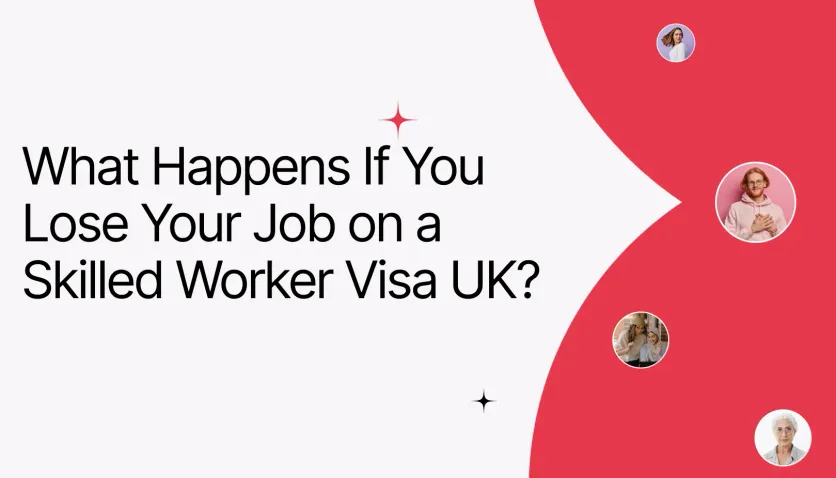Table of contents

Share
If you have a Sponsor Licence and want to employ an overseas candidate to work in the United Kingdom, you need to ensure that their role has been recognised as an eligible occupation to be sponsored in the UK. It means that your employee's Standard Occupational Classification (SOC) code must be listed on the Skilled Worker, the Global Business Mobility, or the Scale-up lists of eligible occupations and going rates.
The purpose of SOC codes in the UK is to reassure the Home Office that the migrant's position corresponds to their experience and the established salary threshold required for a Skilled Worker Visa, Global Business Mobility Visa, or Scale-up Visa.
As a sponsor, you must choose the correct SOC code for a specific position. It is important to understand how to select it correctly, as using an incorrect code may lead to the Defined Certificate of Sponsorship or Visa application being refused.
QC Immigration experts have prepared an article detailing the specifics of SOC code selection and the problems that may arise when using the wrong code.
The Process of Sponsorship
The immigration laws of the United Kingdom require a foreign worker to have a firm job offer and apply for the correct Visa before arriving in the UK to start work. A Certificate of Sponsorship (CoS) has been introduced to regulate the hiring process of foreign employees for permanent or temporary positions.
It is an official document that all sponsored workers, including highly skilled ones, are required to obtain. It includes the employee's personal information, employment terms, and details about the company. Therefore, the CoS must also contain a short description of the position, salary, working hours, and occupation code.
The Home Office applies a points-based system to determine whether a Certificate of Sponsorship and relevant Work Visa can be granted to a foreign specialist. The sponsored position must meet several criteria, including and not limited to: skill level, salary range, and English language proficiency. Each of these corresponds to a specific number of points. The Home Office determines whether the position meets the required qualification level based on the chosen SOC code.
What is a Standard Occupational Classification (SOC) Code?
SOC codes are four-digit numbers that the government uses to classify jobs in compliance with their titles and types of activities. The UK's National Statistics Office manages the qualification system. Occupation codes must cover all possible types of work for which sponsorship may be obtained.
Each job that meets the requirements of the Skilled Worker Visa, Global Business Mobility Visa, or Scale-up Visa has its own SOC code in the UK. Codes are also used to determine the salary threshold or the going rate for each position.
Here are some examples of SOC codes and their job titles:
- 2136 - Programmers and software development professionals (Analyst-programmer, Database developer, Games programmer, Programmer, Software engineer)
- 3545 - Sales accounts and business development managers (Account manager (sales), Area sales manager, Business development manager, Product development manager, Sales manager)
- 2121 - Civil engineers (Building engineer, Civil engineer, Highways engineer, Petroleum engineer, Public health engineer, Site engineer, Structural engineer)
Choosing the Right SOC Code for the UK Work Visa
To choose the most appropriate Standard Occupational Classification code, you need to follow these steps:
- Clearly define the job responsibilities and candidate requirements.
- Using the ONS Occupation Coding Tool, find and familiarise yourself with the specific position.
- Select the most appropriate Standard Occupational Classification code in the UK for the proposed vacancy. It is important to note that the position does not necessarily have to include all specified job responsibilities as long as they have sufficient relevance.
Make sure that the immigration officer at the UK Home Office will not find reasonable grounds to believe that you have chosen a less suitable code for the following reasons:
- The code is not eligible under the relevant route.
- The other code has a higher going rate than the proposed salary.
- The code is not on the Shortage Occupation List, and the applicant is claiming points for a job under the Shortage Occupation List.
If the job is a closer match to an ineligible lower-skilled role or if the salary is too low, the sponsor can not employ a sponsored worker for that position.
Consequences of Using an Incorrect Job SOC Code in the UK
Using the wrong SOC code can have the following consequences:
- The UK Visas and Immigration (UKVI) has the right to reject your Certificate of Sponsorship request or the worker's application for a Skilled Worker Visa (without necessarily notifying the employer of the latter).
- Companies that violate the rules of using SOC codes may face Sponsor Licence suspension.
If you have used the wrong SOC code, report it to the UKVI or seek legal advice as soon as possible. By promptly reporting the amendments to the authorities or submitting a fresh application, you reduce the likelihood of your employee being denied a visa or the business facing compliance action.
Revisions to SOC codes
UK SOC codes and minimum salaries can change. Therefore, you need to regularly check the relevance of the SOC code list, job types, job titles, and salaries. Relying on an outdated list may result in unintentionally using obsolete data, denying a CoS or Skilled Worker Visa, or worse, losing a Sponsor Licence.
To avoid potential problems, regularly check the latest Immigration Rules and the accuracy of the information submitted.
How Can We Support You in Selecting an Occupation Code?
QC Immigration is your reliable partner in Corporate immigration matters for the United Kingdom. Our qualified immigration specialists possess insights and experience from managing a wide range of business immigration matters on a daily basis. We have the expertise to support and guide you in selecting the most appropriate SOC code, ensuring a smooth Sponsorship & Visa process.
Contact our Sponsorship specialists online, by phone at +44203 637 8633, or via email at info@qc-immigration.com.



